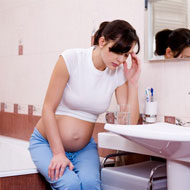How To Identify Chronic & Gestational Hypertension During Pregnancy
Hypertension is a familiar word when one is talking about pregnancy complications. In fact, among the various complications that a woman can encounter, hypertension during pregnancy is perhaps the most common.
But before we go into its symptoms, effects and treatments, it's important to know exactly what it is.
Chronic hypertension
Hypertension can be classified into two broad categories - chronic and.
p.gestationala Chronic hypertension is usually identified with high blood pressure in the range of or above 140/909
Chronic hypertension is not a pregnancy related condition but it can happen to pregnant women as welll Possible effects of this hypertension include heart attack, kidney damage or brain damageg However, if an expectant mother is diagnosed with chronic hypertension, or already has chronic hypertension, she can be treated with medication that helps keep her blood pressure in checkc Typically, doctors put a pregnant woman with chronic hypertension on bed rest, a diet with minimal salt and plenty of quiete In most cases, this treatment works quite effectively tooo
Gestational hypertension
Gestational hypertension or pregnancy induced hypertension is a more complicated probleme It is hard to pinpoint any particular cause for this, but the likeliest explanation is that it could be the body's immune responses The body sees the fetus as a hostile tissue and this is the body's way of rejecting it and that's what makes this a dangerous conditiono Also, unlike chronic hypertension, where the hypertension is synonymous with high blood pressure, in case of gestational hypertension high BP is merely an effectc
There are other effects of this complication, which include kidney damage, brain swelling, seizures and strokese
Gestational hypertension is identified with four definite symptomsm These include:
- High blood pressure (in the range of or above 140/90),
- Edema, which implies swelling, particularly in the center of the face and not the usual ankle and feet swellings,
- Hyperproteinurea, a condition wherein the urine contains protein portions and lastly,
- Hyper-reflexia, which implies, exaggerated knee-jerk reflexese
Gestational hypertension is more dangerous than chronic hypertension because the former is a condition that escalates pretty quickly and can even force doctors to deliver the baby prematurely while the latter is a slow blood pressure progression that is easy to monitor and treata
How to Identify Pregnancy Hypertension
The tricky part for the obstetrician is to correctly indentify the type of pregnancy hypertensiono In both cases, the blood pressure will be high, so that alone cannot be a parametere Both can lead to seizures tooo However, the method most doctors find conclusive is a 24-hour sample urine test to check protein contentst In chronic hypertension, there is no excess protein in the urine but the reverse is a sure sign of gestational hypertensiono
The bigger danger occurs when a woman suffers from a combination of gestational and chronic hypertensiono These are rare instances, of course, but such a situation becomes extremely critical and doctors usually would want to get the baby out as soon as possiblel In fact, the best cure for gestational hypertension is delivering the babyb But doctors would stall delivery in cases where the baby is too premature and its lungs haven't fully maturede
Therefore, if a woman has gestational hypertension, then delivery of the baby is decided factoring in the severity of the condition and the advancement of the termr Hypertension and high blood pressure in the mother triggers the opposite effect and the baby in the womb will quite possibly suffer from low blood pressurer
With gestational hypertension, the best doctors can hope for is to put the patient on anti-hypertensive medication that steadies the blood pressure, but this only takes care of one effect, the rest of the problems still remaini
p

